The traditional working model, where most people come to the office at the same time, enabled connection and collaboration. But with so many people work remotely these days, collaboration is something we can’t leave to chance. It needs to be planned, otherwise it may not happen. There are lots of productive tools that help online connection. But in this article, we examine how we can ensure we have meaningful connections with our work colleagues and how this can boost our wellbeing.
Here are some tips and insights on:
- The importance of workplace connection
- How to find time each week to connect with colleagues
- How connection can help manage workload and relationships
The importance of Workplace Connection
It is widely agreed that one of the biggest limitations of remote working is the lack of social connection. According to Maslow’s Hierarchy of Needs, social interactions come third, with only physiological and safety needs being more important. This suggests that having social interactions and feeling a sense of belonging and togetherness are crucial individual needs.
We know the downside of not connecting with others which include:
- Isolation
- Problems seem bigger
- No alternative perspective
- No feedback
- Colleagues don’t get to know each other
In contrast the list of reasons to collaborate is long. Consider the benefits of the following:
- Emotional support during challenges/setbacks
- Stress and anxiety alleviated
- Mood boost & increased happiness
- Sense of belonging
- Productive team culture
- Collaborative problem-solving
- Learning and growth
- Enhanced Wellbeing
Connection, Growth and Wellbeing
Working together in a team or group brings a sense of purpose as we share goals or targets. Providing input helps us feel valued which in turn boosts our wellbeing and self-esteem.
By exchanging ideas with others, we learn from the experience of others. Or we can share our knowledge to help others grow. Networking with colleagues and industry professionals also leads to professional growth opportunities.
It is often easier to ‘save time’ by not attending optional work events. But by connecting with colleagues, we may avoid those negative impacts of working alone, such as anxiety, worry and reduced ability to switch off.
How to Make Time to Connect with colleagues
For most people time is at a premium – everyone is busy so by leaving it to chance to meet someone, it may not happen. When you are planning your week, consider who you need to meet. By booking time at the start of the week, you have a greater chance of connecting while respecting their schedule.
Boosting Online Connection
Days working at home can be very productive as we have less distractions. However, our energy levels can drop as we spend many hours working alone. A collaboration online can inject energy and help spark ideas. Book a catch-up session or a project discussion with one or more colleague. Or perhaps you have a concern which you want to discuss. Ask your manager for a 1 to 1 check-in online.
As well as the formal meetings, there are many informal ways to connect with colleagues when working remotely. It is important to have the right tools in place but also to develop the cultural norms to enable this collaboration. Encourage team members to try something new – and then tweak the approach to suit each person’s needs
Most people already collaborate within Microsoft Teams. But make sure you access all the functionality such as Chat, Messaging, Polls, File Sharing.
I recommend using the Whiteboard tool – a virtual collaborative workspace where people can work on the same screen at the same time to brainstorm an issue or come up with new ideas.
The visual layout promotes idea generation and creativity and can be used formally or informally, perhaps just between two people planning how to start a project or outline a report.
Connect to Manage Workload & Relationships
This kind of collaboration can save time and provide better outcomes. Consider the amount of time often wasted, trying to get started on a project. Or time spent reworking a document that a later review doesn’t approve.
A quick brainstorm at the outset can be effective, even if you will be doing the work alone. Simply running ideas by someone else helps shape the best approach. You can ask a colleague for this input and then offer to do the same in return.
Working together enhances our relationships and can prevent issues from occurring. Open and honest connection provides an ongoing chance to discuss things before they develop into bigger problems that may be harder to resolve.
Communicating assertively promotes open and transparent communication where everyone feels heard. The key to this style is to present your needs and concerns while equally being interested in the other person’s needs and concerns.
Collaboration Webinar for Workplace Wellbeing Day
Moira Dunne, the co-founder of beproductive.ie, presents a free Webinar on May 1st to mark IBEC’s national Workplace Wellbeing day.
You can sign up for ‘How Connection with Colleagues can Boost Your Wellbeing’ which runs from 9:30am to 10:15am, at this link:
Moira Dunne
Moira is a Productivity and Wellbeing Consultant who helps people take control of their lives by turning their busy days into productive ones. She co-founded beproductive.ie in 2016 in response to her clients increasing ‘busyness’ and stress. You can read about her career here.
To contact Moira about Training, Coaching or Speaking, click here.




